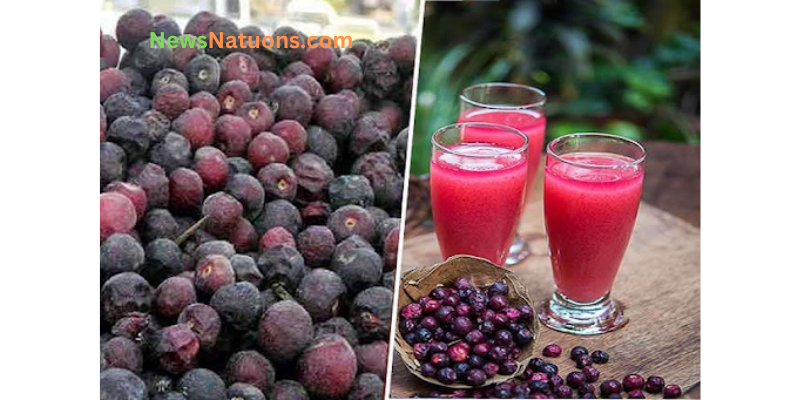Many people believe that eating eggs in summer is harmful to health, especially in regions with intense heat. This belief is widespread in South Asian cultures, where traditional wisdom often dictates food choices based on the season. However, this assumption is not entirely correct. In reality, eggs can be consumed in every season, including summer, as long as they are eaten in moderation and prepared properly.
Nutritional Powerhouse for All Seasons
Eggs are one of the most nutritious foods available. They are rich in high-quality protein, essential vitamins such as B2, B6, B12, and D, as well as minerals like zinc and iron. These nutrients contribute to overall health, including brain function, bone strength, immune system support, and muscle repair. During summer, when people tend to feel fatigued or low in energy, eggs can actually help restore strength and vitality.
Balancing Heat with the Right Cooking Method
The concern about eggs producing “heat” in the body is rooted in the traditional concept of hot and cold foods in Eastern medicine. While it’s true that overconsumption or preparation methods like frying can contribute to internal heat, the way you cook and consume eggs makes all the difference. Instead of frying eggs in oil, which adds unnecessary fat and increases body heat, boiling them is a healthier summer-friendly option. Boiled eggs are easier to digest and retain more nutrients without the added fats.
Digestive Considerations in Summer
In hot weather, the body’s metabolism slows down, and the digestive system can become more sensitive. Eating too many eggs—especially fried ones—may lead to indigestion, bloating, or discomfort. This is why moderation is key. Experts recommend consuming one egg a day during summer, preferably the egg white, which is high in protein but low in fat and cholesterol.
Freshness Is Critical in Hot Weather
Eggs can spoil faster in summer due to high temperatures. Therefore, it’s essential to store them properly in a cool, dry place or in the refrigerator. Always check the expiration date, and avoid using eggs with cracks or odd smells. Consuming spoiled eggs can lead to food poisoning or other digestive issues. Fresh eggs not only taste better but also reduce the risk of bacterial infections like salmonella.
Benefits for the Heart and Brain
Contrary to the myth that eggs are bad for heart health, recent studies show that moderate egg consumption does not harm heart function in healthy individuals. The yolk contains cholesterol, but also has healthy fats like omega-3 that are beneficial for the brain and heart. For those with heart conditions or high cholesterol, it’s best to consume egg yolks in limited amounts and focus more on the whites.
Expert Recommendations on Summer Egg Intake
Nutritionists generally advise that consuming one egg per day, especially the white part, is safe for most people—even in summer. People with specific medical conditions like heart disease, liver issues, or high cholesterol should consult their doctor for personalized guidance. Children, pregnant women, and the elderly can also benefit from eggs, as long as hygiene and freshness are maintained.
Hydration and Balanced Diet Matter
Another important point is to stay hydrated and maintain a balanced diet. If you’re eating eggs in summer, make sure you’re also consuming enough water, fruits, and cooling foods like cucumbers, yogurt, and melons. This helps the body balance any internal heat and ensures that digestion remains smooth. Combining eggs with fresh vegetables in salads or sandwiches can make for a healthy, light, and satisfying summer meal.
Final Word
Eating eggs in summer is not inherently harmful. The key lies in quantity, preparation, and freshness. When consumed thoughtfully, eggs remain a highly nutritious and beneficial food even during hot months. Avoiding excessive oil, choosing boiling over frying, and sticking to one egg per day can help you enjoy their benefits without discomfort.
اکثر لوگ سمجھتے ہیں کہ گرمیوں میں انڈے کھانا صحت کے لیے نقصان دہ ہو سکتا ہے، خاص طور پر اُن علاقوں میں جہاں شدید گرمی پڑتی ہے۔ یہ سوچ خاص طور پر جنوبی ایشیائی ثقافتوں میں عام ہے، جہاں روایتی طور پر کھانے کا انتخاب موسم کے لحاظ سے کیا جاتا ہے۔ لیکن حقیقت میں یہ بات مکمل طور پر درست نہیں ہے۔ انڈے ہر موسم میں کھائے جا سکتے ہیں، بشمول گرمیوں کے، بشرطیکہ ان کا استعمال اعتدال اور درست طریقے سے کیا جائے۔
ہر موسم کے لیے بہترین غذا
انڈے غذائیت سے بھرپور ہوتے ہیں۔ یہ اعلیٰ معیار کے پروٹین، وٹامنز جیسے B2، B6، B12، D اور منرلز جیسے زنک اور آئرن سے بھرے ہوتے ہیں۔ یہ غذائی اجزاء دماغ، ہڈیوں، پٹھوں اور قوتِ مدافعت کو مضبوط کرنے میں مدد دیتے ہیں۔ گرمیوں میں جب اکثر جسم نڈھال محسوس ہوتا ہے، انڈے توانائی کی بحالی میں اہم کردار ادا کرتے ہیں۔
درست طریقے سے پکانے سے گرمی کا اثر کم

انڈے جسم میں گرمی پیدا کرتے ہیں، یہ بات مشرقی روایتی طب کے مطابق درست ہے، لیکن اس کا انحصار انڈے پکانے اور کھانے کے طریقے پر ہے۔ تیل میں فرائی کیے ہوئے انڈے نہ صرف چکنائی بڑھاتے ہیں بلکہ جسم میں حرارت بھی زیادہ کرتے ہیں۔ اس کے برعکس اُبال کر کھائے جانے والے انڈے ہلکے، آسانی سے ہضم ہونے والے اور زیادہ غذائیت والے ہوتے ہیں۔ گرمیوں میں اُبلے ہوئے انڈے ایک بہتر انتخاب ہیں۔
نظامِ ہضم اور انڈے کا تعلق
گرمیوں میں نظامِ ہضم قدرے سست ہو جاتا ہے، جس سے معدہ حساس ہو سکتا ہے۔ اگر بہت زیادہ انڈے کھائے جائیں، خاص طور پر تلے ہوئے، تو بدہضمی، گیس یا اپھارہ ہو سکتا ہے۔ اسی لیے ماہرین مشورہ دیتے ہیں کہ گرمیوں میں دن میں ایک انڈہ کافی ہے، وہ بھی سفیدی، جو کم چکنائی اور زیادہ پروٹین والی ہوتی ہے۔
گرمی میں انڈوں کی تازگی انتہائی ضروری
گرمی کے موسم میں انڈے جلد خراب ہو سکتے ہیں۔ اس لیے انہیں ٹھنڈی، خشک جگہ پر یا فریج میں محفوظ رکھنا ضروری ہے۔ ہمیشہ انڈے خریدتے وقت ان کی میعاد اور ظاہری حالت دیکھیں۔ ٹوٹے یا بدبو دار انڈوں سے پرہیز کریں، کیونکہ یہ فوڈ پوائزننگ یا پیٹ کی دیگر بیماریوں کا باعث بن سکتے ہیں۔ تازہ انڈے نہ صرف ذائقہ میں بہتر ہوتے ہیں بلکہ بیماریوں سے بچاؤ میں بھی مدد کرتے ہیں۔
دل اور دماغ کے لیے فائدہ مند
ایک عام غلط فہمی یہ ہے کہ انڈے دل کے لیے نقصان دہ ہیں، لیکن جدید تحقیق کے مطابق، اعتدال میں انڈے کھانا دل کے لیے نقصان دہ نہیں بلکہ فائدہ مند ہو سکتا ہے۔ انڈے کی زردی میں کولیسٹرول ہوتا ہے، لیکن اس کے ساتھ ہی اومیگا 3 جیسی صحت مند چکنائیاں بھی شامل ہیں جو دل اور دماغ کے لیے فائدہ مند ہیں۔ دل یا کولیسٹرول کے مریضوں کو زردی کم مقدار میں کھانے کا مشورہ دیا جاتا ہے۔
ماہرین کی رائے
ماہرینِ تغذیہ عام طور پر یہ کہتے ہیں کہ گرمیوں میں ایک انڈہ روز کھانا، خاص طور پر اس کی سفیدی، صحت کے لیے محفوظ ہے۔ اگر آپ کو پہلے سے کوئی بیماری ہے، جیسے دل کی بیماری یا کولیسٹرول کا مسئلہ، تو اپنے ڈاکٹر سے مشورہ ضرور کریں۔ بچے، حاملہ خواتین اور بزرگ افراد بھی انڈوں سے فائدہ اٹھا سکتے ہیں بشرطیکہ تازگی اور صفائی کا خیال رکھا جائے۔
متوازن غذا اور پانی کی اہمیت
گرمیوں میں انڈے کھاتے وقت متوازن غذا اور پانی کی مقدار کا خیال رکھنا ضروری ہے۔ انڈے کھانے کے ساتھ ساتھ پانی، دہی، کھیرا، تربوز جیسے ٹھنڈے غذاؤں کا استعمال جسم میں توازن پیدا کرتا ہے۔ انڈوں کو سلاد یا سینڈوچ میں شامل کرنا صحت مند اور ہلکا پھلکا کھانے کا اچھا طریقہ ہے۔
نتیجہ
گرمیوں میں انڈے کھانا بذاتِ خود نقصان دہ نہیں ہے۔ اصل بات اعتدال، درست پکانے کا طریقہ اور انڈوں کی تازگی کی ہے۔ اگر آپ ان نکات کا خیال رکھیں تو انڈے نہ صرف آپ کو توانائی فراہم کریں گے بلکہ آپ کی صحت کو مزید بہتر بھی بنائیں گے۔











